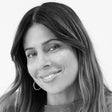
By Ashleigh Austen
After decades of seeing perfectly airbrushed skin in the media, a shift has been happening in recent years.
Known broadly as the skin positivity movement, it has seen influencers, brands and celebrities alike posting images of real, unfiltered faces for the world to see. Instead of altering the appearance of skin, skin positivity is all about changing our perception of it.
Melbourne content creator and beauty therapist, Maddie Edwards, has been a prominent player in the groundswell of the movement here in Australia. With over 35,000 followers on Instagram, the 27-year-old frequently shares unfiltered images of her skin, in an effort to normalise acne and eczema.
We sat down with Maddie recently to chat all things skin, social media and society’s changing beauty standards.
You’ve been quite open about your skin. Can you tell us a little bit about your journey?
“I was actually one of the lucky ones who breezed through high school reasonably unscathed by any skin afflictions. I had eczema but nothing too bad. The hormonal acne I deal with now really crept up on me after I left school though. It sucked because it was when most of my friends’ skin was clearing up and I felt alone, and honestly, ugly. Luckily, I’ve come a long way since then and I feel more comfortable than ever in my skin! I love and appreciate my body for all that it does for me, even if it doesn’t look or feel the way that I’d ultimately choose.”
When did you first start developing acne?
“I was about 19 when I started experiencing cystic acne on my cheeks, but it went away for a while and then came back. It followed that pattern for a while. When I was 23, the acne decided it wanted to make itself a permanent home on my face and I’ve been managing that for the last few years.”
As a beauty therapist, was it tough going to work each day with visible skin issues?
“It was truly the most testing time of my life. I left beauty school as an internationally qualified beauty therapist with so much passion and confidence in what I’d learned. But it was like my visible hormonal acne discredited all of that. I’d be recommending products and techniques to my facial clients and the way they looked at my skin, it was as if I might as well have had ‘I don’t know what I’m talking about’ written across my forehead. It made me realise that a lot of people are unaware that there are different kinds of acne, and that it doesn’t signify the sufferer is unhygienic or doesn’t wash their face properly.”
Why did you decide to go bare-faced on social media and start opening up about your skin?
“After feeling so alienated by the industry I loved so much, I wanted to fight back. I was annoyed that I had to put makeup on and hide my skin in order to be taken seriously. I was tired of pretending, and tired of hating my reflection in the mirror. I knew I wasn’t going to find self-acceptance until I was honest and vulnerable with myself, and posting photos of my real skin felt like the best way to do that. It was honestly an immediate weight off my shoulders.”
What was the reaction when you first started sharing unfiltered images?
“It was overwhelmingly positive. I couldn’t believe that I used to feel alone. Sharing such a raw version of myself on Instagram resonated with so many people who experience acne or other skin issues.”
Having skin issues can be really frustrating and isolating. How has sharing your story helped you to navigate some of those feelings?
“Sharing my skin has completely flipped everything I thought I knew on its head. I now see my acne as a blessing, not a curse. I can’t believe that I can help people feel more comfortable in their own skin by being vulnerable and open about mine. Thinking about it makes me emotional because the reason I got into beauty therapy in the first place was that I wanted to help people feel beautiful, comfortable and deserving. I didn’t expect it to manifest in the way that it has, but I’m grateful every single day.”
Do you think society’s beauty standards are changing and adapting to be more inline with realistic standards?
“I do! Slowly. I’d say fashion and beauty brands steer the ship when it comes to society’s beauty standards. They have the power to show what’s normal and what’s real. Across the board, there’s still a lot of tokenism for the sake of inclusivity. But even that’s a step in the right direction in my opinion. It’s more than we’ve had. When I think about where society’s beauty standards were when I was a teenager versus where they’re at now, it makes me feel excited about where they’ll be in another 10 years. Especially now that we have social media, which we know can be loud and powerful.”
Have you felt a shift in people’s attitudes towards seeing images that are not retouched or filtered?
“It’s hard to say. I see people praising unfiltered and unedited images that influencers or brands post, because it reminds them that they’re normal and it’s real and it’s refreshing. Then under the same photo, I’ll see people in the comments offering unsolicited advice, desperate to fix the person in the photo’s cellulite, or pimples, or body hair, as if they’re problems that we need to get rid of instead of just accepting them for what they are: normal, everyday things that most people experience. I guess we’ll see what happens!”






